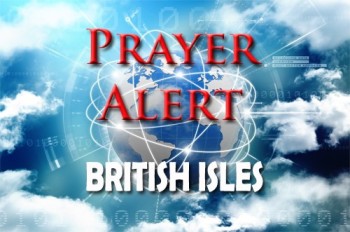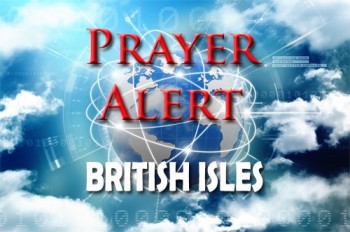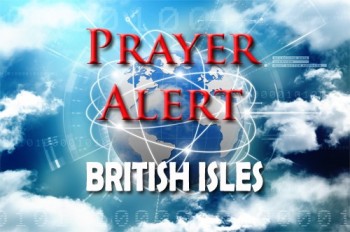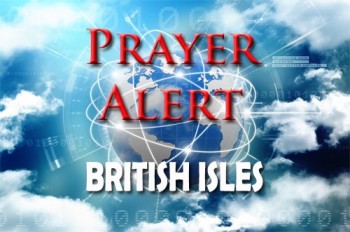Displaying items by tag: AstraZeneca
AstraZeneca withdraws Covid-19 vaccine worldwide
AstraZeneca has announced the global withdrawal of its Covid-19 vaccine, Vaxzevria, citing a surplus of newer vaccines targeting emerging virus variants. The company previously halted its marketing authorization in the European Union in March, with the European Medicines Agency confirming on May 7 that the vaccine is no longer authorised. This decision reflects the reduced demand for Vaxzevria, which is no longer being manufactured or supplied. AstraZeneca stated that the variety of new vaccines available has led to this decline in use. Despite the withdrawal, the company highlighted that Vaxzevria played a crucial role in the pandemic's early stages, saving an estimated 6.5 million lives and delivering over 3 billion doses globally. Other countries, including Australia, have ceased its use, transitioning to newer vaccines since June 2021. Vaxzevria, which was administered in two doses and occasionally as a booster, is based on an adenovirus vector carrying a gene from SARS-CoV-2. While effective overall, it was linked to a rare but severe side effect, thrombosis with thrombocytopenia syndrome (TTS), affecting about two to three per 100,000 vaccinated individuals.
Nigeria: one million expired doses of vaccine destroyed
The national primary health care agency (NPHCDA) destroyed 1,066,214 expired doses of the AstraZeneca vaccine that were donated to them in October but had to be used by November. The decision to destroy the vaccinations followed several testing processes showing it was necessary to destroy them to protect Nigerians from being harmed. NPHCDA’s director said they had an option to try and use these vaccines beyond the labelled expiry date, but decided to destroy them at the point they expired. The vaccines came with a short life span, some as short as two weeks. NPHCDA said while Nigeria appreciated the gesture of the donors, it was not in the interest of Nigeria that vaccines with a short lifespan were sent there. Only ten million Nigerians have been vaccinated to date: Nigeria’s target is 110 million people.
EU threaten UK over AstraZeneca jabs
Brussels will not export AstraZeneca’s (AZ) vaccine manufactured in the EU to the UK until it meets its vaccine commitment to the EU. Its internal market commissioner, emphasised, ‘there is nothing to negotiate’ referring to EU’s ongoing talks over vaccine production. He said coronavirus vaccine production from Belgium and the Netherlands matches vaccine commitment made by AZ to the EU and thus must be reserved for them. ‘If AZ does more, we don’t have any issue, but as long as it doesn’t deliver its commitment to us, the doses stay in Europe - except for Covax (a vaccine programme delivering vaccines to poor countries).’ He said they are trying to ensure that AZ’s contract with the EU is delivered. In August AZ agreed to supply 300 million doses, with an option for another 100 million doses. Unfortunately, the supply has been slow, and they slashed their commitment to 30 million in the first quarter.
Over-50s to book jabs before supplies dip
The NHS said anyone who currently qualifies for their Covid-19 jab (aged over 50 or in at-risk categories) should book their first dose of Covid-19 jabs before 29th March when slots are set to dry up. Officials expect a slowdown in vaccine supplies in April and medics will be focusing on providing second doses. Ministers say the plan to offer a first dose to all adults by July is on track. However NHS England said no first appointments should be booked next month for people under the age of 50 unless they fall into a higher priority group (those who are clinically vulnerable). The reduction in the UK's Covid vaccine supply is partly due to delays in deliveries from India of five million Oxford-AstraZeneca doses. Indian foreign ministry sources said they have placed a temporary hold on all exports of vaccines amid a rising number of domestic cases.
France / Germany: careless talk dents vaccine confidence
In January the AstraZeneca vaccine was approved in Europe for all adults. But several countries, including France and Germany, restricted its use in over-65s due to a lack of data about its effectiveness. France’s Emmanuel Macron claimed the vaccine was ‘quasi-ineffective’ in older age groups, and the German newspaper Handelsblatt had a similar report; but these statements are unfounded. In the over-80s, a single shot of either the AstraZeneca or Pfizer vaccine appears to be over 80% effective at preventing hospitalisation. Although the regulators have both now reversed their advice, the majority of their AstraZeneca doses are yet to be used. It seems that the regulators’ prevarications, and loose talk from politicians and bureaucrats, have undermined confidence in the AstraZeneca vaccine.
Vaccines paid for must be delivered
Michael Gove said that vaccines paid for must be delivered, with no ‘interruption’ in immunisation because of an argument between AstraZeneca (AZ) and the EU. The row erupted after the pharmaceutical giant warned the EU that it would experience a shortfall of up to 60% in the promised delivery of 100 million doses this quarter. AZ blamed its troubles on technical issues at its Belgium plant, the main production facility for Europe - and delay in ordering by the EU. The EU says it has legal right to jabs from AZ's two UK plants, as AZ must stick to its contractual obligations. The company claims its agreement includes a ‘best effort’ clause that makes its delivery goals an estimate rather than a rock-solid commitment. See also the Europe article ‘Vaccination supply chain’.
Vaccination supply chain
The dispute between the EU and AstraZeneca continues. The EU ‘wants clarity on the vaccine delivery schedule’, and requested a clear plan for fast delivery of their reserved vaccines. AstraZeneca explained the complexities of scaling up production of the vaccine. It is striving to bring this vaccine to millions of Europeans at no profit during the pandemic, but there were production issues at factories on the continent and problems with Europe’s supply chain. It is providing as many doses as possible. The EU said this is a breach of contract, and that the company should send vials from other production facilities - like those in the UK - to match previously made commitments. The UK said vaccine supplies would not be interrupted: see
Covid-19 vaccines
British / Swedish drugmaker AstraZeneca has announced promising results in developing a vaccine. An early analysis of some of its late-stage clinical trials, conducted in the UK and Brazil, showed that its coronavirus vaccine was 70.4 percent effective in preventing Covid-19, suggesting that the world could eventually have at least three working vaccines - and greater supply - to help curb the pandemic. However, doubts are being expressed about the results of the trials, mainly because they are based on a very small sample of people. British scientists are defending the validity of the findings, and look forward to further evidence becoming available in December. See







